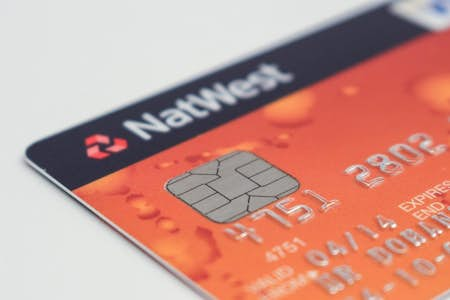If you have long been a saver, you'll know that interest rates in the UK, until 2022, had been at historic lows since the 2008 financial crisis and, more recently, the Covid-19 pandemic. In light of those circumstances, you may have opened an investment fund or account to achieve higher returns, which you may now want to do for your kids or grandkids.
As a parent or grandparent, you often want to help provide for your child's or grandchild's future. However, you'll likely want to provide for them in the most low-cost, high-value way available.
While you may wonder whether a lifetime ISA is suitable for your needs, these products, despite their name, are not available to under 18s. But a Junior ISA, or JISA, could potentially be a good option for you and any offspring. However, to maximise the benefits, you must know how to find the best Junior ISA. Note that only a child's parent or legal guardian can open a Junior ISA, but you can still set up a standing order to make regular contributions as a grandparent. You might even be the only person who ever adds money to the account!
Save for your grandchildren's future by checking out the UK's leading Junior ISA providers now.
What is a Junior ISA?
First, it's crucial to understand this type of product. Doing so helps ensure you make a productive financial decision for yourself and your child or grandchild.
ISA stands for Individual Savings Account. A Junior ISA is an account available to those under 18. Like an adult ISA, it has a set amount that can be invested over a year. A Junior ISA currently has a limit of £9,000 per tax year.
They're a tax-free savings account where any gains on the funds invested - i.e. interest - are not subject to income tax.
Types of Junior ISA
Before picking a provider with which to open a JISA, you need to decide what type is most suitable for your needs and circumstances.
Junior cash ISA
A cash ISA is a long-term investment account. You can invest a lump sum or make regular contributions to earn a set interest rate each year. It's like opening a standard savings account; only with a JISA, you do not have to pay any tax on the interest earned.
Cash ISAs are advertised with interest rates or AERs so that you can compare different types - much like credit cards. Of course, you'll often want to go for the highest interest rate offered on the market in the tax year you are opening one. Still, there may be instances where you want to choose a product with a lower rate. For example, you may prefer to use a provider you already use, like the bank where you have your existing current account.
Junior stocks and shares ISAs
A stocks and shares ISA is an account where you can buy and sell investments. The name is actually a little bit misleading in that you can purchase other asset types through these products. For example, it is possible to trade investment trusts, ETFs, and bonds through a stocks and shares ISA.
As these accounts invest in assets, your investment has no set interest rate. Therefore, it can be much higher than what you could earn from a Cash ISA, yet still not be liable to any tax payments on profits made.
Junior stocks and shares ISA vs Junior cash ISA
Knowing the difference between a stocks and shares Junior ISA and a cash Junior ISA is crucial. Once you know, you can decide which is the most suitable for you and your child or grandchild.
The benefit of a cash ISA is that you know what the invested funds will earn from the outset. Plus, far less effort and involvement are required from you to achieve that interest. It means it could be the best option if you have little time or knowledge to run a portfolio, which you may need with a stocks and shares ISA, depending on how you manage it.
On the other hand, if you have the time available, a stocks and shares ISA offers the potential for uncapped returns. That could translate into a significant amount - particularly if, for example, you invest £9,000 yearly until a child's 18th birthday. The cumulative effect really can add up over such a long period.
Of course, the downside would be that you can lose that amount too. You can look back at the past performance of investments to give a direction for your investment strategy. However, good past performance can never be relied upon in this way. Even the top-performing ETFs or fund managers can have bad days, months or years.
What are the benefits of a JISA?
This list of benefits can help you determine whether this is the right product for you and your child or grandchild.
Tax efficient
ISAs are popular for a good reason. No tax is due on the profits of investments or interest earned on cash holdings. You may think that's an unnecessary advantage for children - given the belief that children do not pay taxes. However, if they earn an income, they are liable to tax bills like those over 18, which is why making use of the tax-efficient savings of an ISA is so essential.
Cumulative gains
As you invest cash into these products for a long time, the cumulative gains can make a big difference. While you can never know the long-term direction of interest rates or foresee investment returns, putting money into an ISA for your children or grandchildren can offset the impact of inflation on your cash.
Plus, the cumulative gains are even more substantial as no tax is due on interest. Those gains can all be reinvested instead of helping to settle a tax bill. When your child turns 18, as you would have reinvested all profits with a stocks and shares ISA and interest earned on interest for a cash ISA, the money would have grown much faster than with a short-term investment horizon.
Different types to suit you
The tax-free benefits of a JISA apply to both the stocks and shares and cash versions of this product. It means you can take advantage of the returns earned on either. You can pick the type that works best for you without having to worry about whether you are saving in the most tax-efficient way possible. So if you want a slightly lower-risk investment, you can still enjoy tax efficiency with a cash ISA. However, if you are happy to risk your initial investment going up as well as down, you also can benefit from the tax efficiency of a stocks and shares ISA.
Locked in
Locking funds in one place isn't always an advantage with savings products. However, for a Junior ISA, it can be an attraction. Locking money away into an account where a child can only access it once they are 18 means you can ensure they do not throw the money away. We cannot say the same about an easy-access savings product with no age restrictions on withdrawals.
While you won't have any say in how they spend it once they gain access to it at 18, you would hope they are mature enough not to fritter it away once they reach that age. That could mean they put it towards a university course or as a deposit on a house.
There is still always the chance they'll use it to make ill-advised purchases that quickly whittle down what you put away. However, giving them until their 18th birthday does at least reduce the chances of making misinformed, immature financial decisions.
What are the disadvantages?
There are a couple of reasons that a JISA of either type may be wrong for you.
Low limit
While £9,000 sounds like a lot of money, particularly to give a child, it could be too low for your needs. For example, you may be looking at JISAs to help minimise future inheritance tax bills. If you have a substantial estate, giving £9,000 a year to children or grandchildren may not be enough to make that much difference.
Plus, relatively speaking, it is much lower than the adult limit of £20,000.
Penalties for early access
The money you put away in these ISAs can only be withdrawn by the named account holder when they turn 18. If you need to access that money - perhaps due to an unforeseen change in your circumstances where you need to put your hands on some cash, you won't be able to. As soon as you put it in a JISA, the money is no longer yours but your child's.
Tips for choosing a Junior ISA account
Despite a couple of disadvantages, as the advantages of a JISA are so compelling, picking the right one to harness those benefits is essential. Here are some ways you can do that.
Choose the type
Consider what type of JISA is best for you first. Do you have the time to run a portfolio, which you would have to do with a stocks and shares ISA? You may be able to invest the money through a fund manager. However, you still have to pick that fund manager who is just as capable of losing money on your investments. Plus, they're more expensive.
However, the problem with cash ISAs is that their interest rates can be low, depending on market conditions. What can make that doubly offputting is if inflation is high, your money is losing value sitting in your bank account. However, the advantage is that it is a low-effort investment that, over 18 years, could still earn a return.
The other important thing to consider when investing in a cash ISA is that you do have to keep an eye on the market. You can transfer your cash ISA to another cash ISA product if you find one with a better interest rate. It's often best not to leave it to languish for 18 years.
Compile a risk profile
While choosing what type to invest in, it can be beneficial to compile a risk profile to see how happy you are to take on risk. Importantly, you need to factor in how comfortable you are for your child or grandchildren to take on risk. Remember, they have a reasonably long investment horizon, especially when they are young. That means you can take slightly riskier investments, which can be helpful when choosing stocks and shares if you decide to go down that route.
Plus, that fact could also help you determine which type to choose. Given the long-term horizon, it could calm your fears that they will end up with nothing on their 18th birthday. It will also guide you more specifically on what investments you are happy to make. For example, in one year, due to your child's risk profile, investing solely in a cash or stocks and shares ISA might be best. However, investing in a mixture of the two could be a good course of action in another.
Interest rates
Interest rates vary from product to product, from year to year. But, as a general rule, interest rates on cash ISAs tend to go down more quickly than they go up. This is because providers are usually more reticent to put up savings rates when the Bank of England increases its base rate.
However, increases do happen, and it's crucial to keep an eye on those movements so your cash ISAs, in particular, are always invested optimally. For example, there's no need to keep a cash ISA invested in a product that once paid a paltry amount if the market is paying far more.
Investment platform
If you decide to go for a stocks and shares ISA, you need to ensure that you can use your chosen provider's investment platform or procedures. For example, some providers will have an online banking platform or app that you find far more intuitive than others. On the other hand, you may find some platforms so clunky that it impedes your investment style. So ensure that you know you can use your potential provider's tools before opening an account and committing your cash. It can make a big difference in how effective you are at investing. Particularly if you find a platform so cumbersome to use that you struggle to place trades at the exact time you want.
You should also ensure that where and how you can access an investment platform works with your trading style. Increasingly, providers have apps from where you can manage your account, but that is not always the case. If you like checking your portfolio on the go, you might want to look elsewhere if your potential provider only allows you to sell or buy shares for a JISA from a desktop computer.
Fees and charges
It's a good idea to check the fees and charges placed on trades before opening a stocks and shares ISA for your children or grandchildren. However, how providers structure their fees can vary dramatically, making comparing two providers difficult. Yet, it can pay to stick with it and understand how each provider's fees and charges could affect you.
That will depend on your trading style. For some, it may be better to invest with a firm with a flat fee for every trade. For others, investing with a company that reduces its trading fee the more you trade each month may be better.
Charges can also be made simply for having an account open, closing an account, or making transfers. These are important to be aware of before opening a new ISA.
Regulation and regulators
Investing your money with an entity that is reputable and abides by the financial laws in the UK is essential. Therefore, you should ensure you put your money with a building society, bank or financial institution regulated by the Financial Conduct Authority (FCA). The best Junior cash ISAs and stocks and shares ISAs are likely to be run by FCA-regulated companies, but it's always prudent to check.
Financial advice
Some investment platforms provide research to their customers, which can inform investment decisions or potentially when to time withdrawals after a child reaches their 18th birthday. Research may not always be explicit financial advice (which you could also seek), but it can make your purchase decisions for the stock market easier.
Junior ISA Providers
In addition to the traditional banks, the following providers could be an option for a JISA.
Moneybox
Allows you to open an account with as little as £1. There's a monthly subscription fee of £1, too, but it's possible to open other account types under the same fee. Moneybox's investment technology is up-to-date and intuitive.
Hargreaves Lansdown
One of the oldest investment platforms around, Hargreaves Lansdown only offers Junior stocks and shares ISAs. The company produces a lot of research which can help with effective investing.
Best Invest
Another company which allows account opening from just £1, Best Invest has a reasonably competitive fee structure for its trades. It could therefore be a good option for a stocks and shares JISA.
Moneyfarm
Another relative newcomer, Moneyfarm, asks for a £500 deposit to open a JISA. Trading can vary according to what you buy and sell, but the account fees get cheaper the bigger the account gets.
Picking the best Junior ISA
The ISA market is enormous, with Junior ISA products available from many providers. While it can be overwhelming to pick one, it should be a comfort to know that these are popular products for a good reason. The tax-efficient savings can significantly affect what you end up accruing for your grandchild or child, especially over 18 years!







